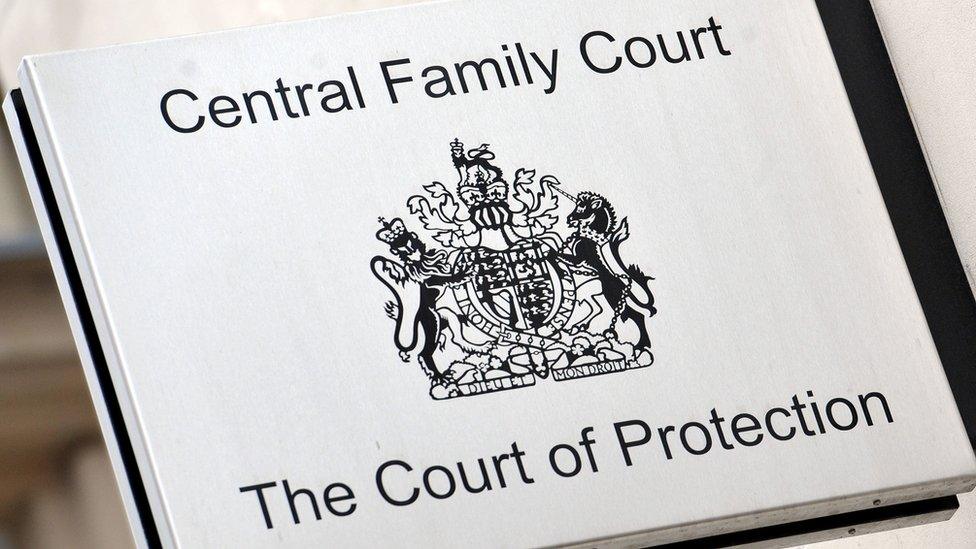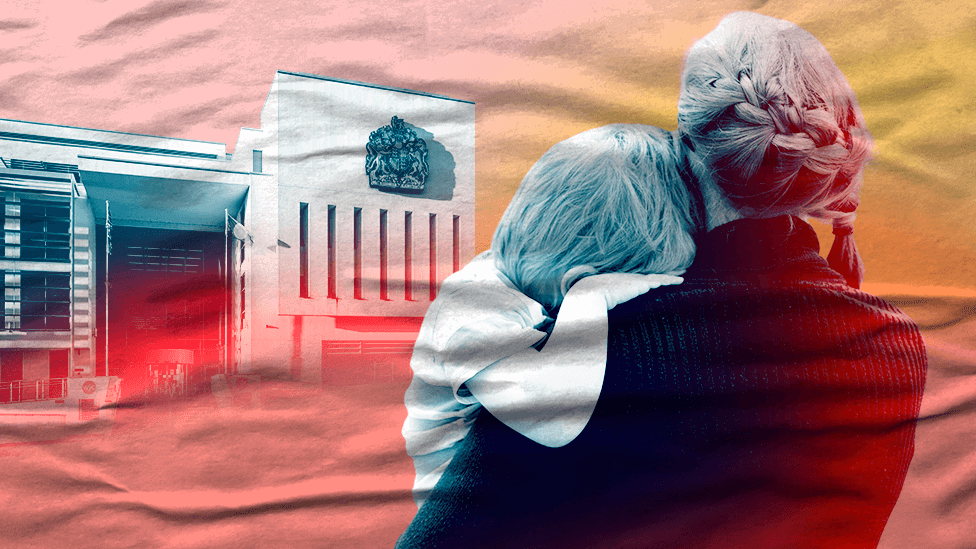Austerity contributing to rise in children in care - head of Family Court
- Published

Austerity has contributed to a rise in the number of children in care, the most senior judge in the family courts has told the BBC.
Sir Andrew McFarlane said cuts to local authorities have left social workers with fewer options to help families.
They often lack the resources to do anything other than go to court, he told Radio 4's Today Programme.
The numbers of children in care in England are at record levels - nearly 84,000 as of March last year.
Authorities apply to the court for permission to take children into care when they are suffering, or at risk of suffering, significant harm.
John Pearce, president of the Association of Directors of Children's Services, said local authorities faced "significant pressures". More children needed help - and cuts meant there were fewer opportunities to support them in the community, he added.
The government has recently announced more resources to support children's services, but Mr Pearce said this "does not solve" the longstanding issue.
Growing transparency
For decades, there have been calls for greater openness in the family courts, which have power to intervene in intimate family matters.
As well as removing children, they decide children's futures where parents are separating and cannot agree.
Their hearings are held in private, but new transparency orders allow the law to be varied so that journalists can report what they see and hear in court, and speak to families, provided they protect their identities.
In a wide-ranging interview with the BBC, Sir Andrew said he had been "apprehensive" when the scheme began a year ago, in Cardiff, Carlisle and Leeds, but reporting had anonymised families and was "of a high quality".
The BBC was the first to report cases in detail last March.
We also used the new initiative to reveal how baby Finley Boden was returned to his parents who murdered him, and to tell the story of a young mother who went to court to protect her daughter from her paedophile ex-husband.
The transparency pilot is expanding on Monday to cover more court centres in England and Wales.
Sir Andrew - who is president of the family division - said family courts were the "hidden relative" in the justice system, though its judges operated "with a greater volume of work" than the Civil Court, or the Crown Court, hearing high level criminal cases.
As in the criminal justice system, cases in the family courts are currently subject to extensive delays.
Care cases have to be completed within 26 weeks, but in most parts of the country that limit is being exceeded. The average case takes close to a year.
Private law cases involving children are taking far longer than they should.
It means tens of thousands of children are spending many months uncertain about their future. The Law Society has described the system as "in crisis", external.
Sir Andrew said the delays were down to Covid, to more separating parents coming to court, and to "very many" people representing themselves, which inevitably took longer than if they had lawyers.
The Ministry of Justice has just announced a series of steps to help separating families resolve their differences without going to court, including legal advice and mediation. The plans include more measures to deal with domestic abuse.
Sir Andrew told the BBC he was "very pleased" with these proposals, especially the plan to run a pilot scheme providing very early legal advice.
He said his "number one priority" was to shorten the time cases take. He said that family cases differed from many other forms of litigation.
"If there's a car crash, the evidence about the skid marks and the broken window is exactly the same if you hear the case today or in six months' time," he said.
"If you put off a case about a child stuff happens during that six months."
Related topics
- Published12 January 2024
